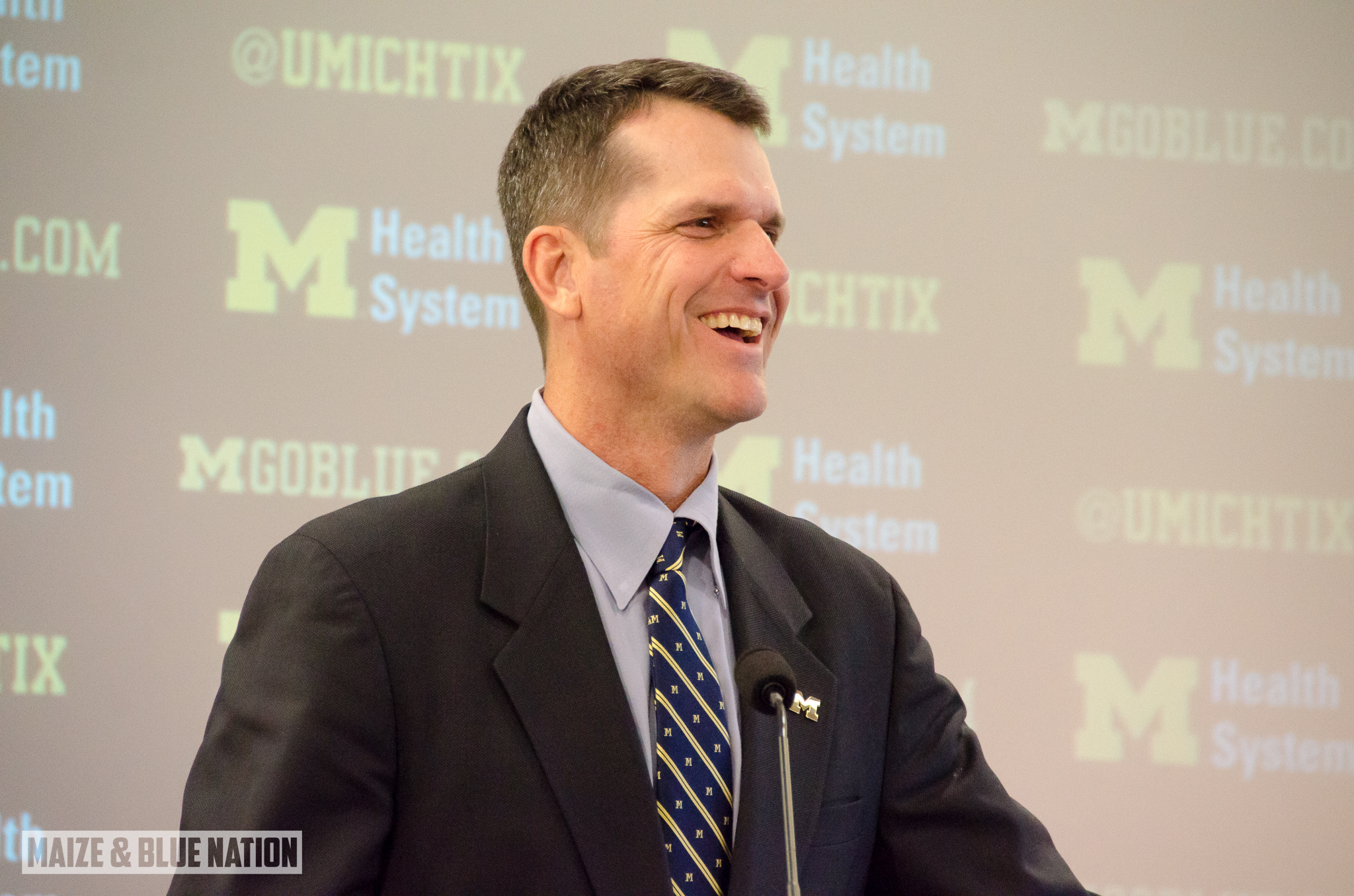Bet. After nine seasons, Jim Harbaugh finally coached the Michigan Wolverines to the pinnacle of college football. By leading his team to winning The Game for the third consecutive season, conquering SEC champion Alabama for the Wolverines’ first championship berth of the College Football Playoff era, and decisively defeating Pac-12 champion Washington for Michigan’s first outright national championship since 1948, Harbaugh irrevocably ensconced himself in his alma mater’s sporting immortality. Despite all the trials and tribulations — from allegations of sign stealing to supposed recruiting violations — Michigan’s chorus of critics has been definitively silenced.Now that the “business is finished,” there is rampant speculation regarding Harbaugh’s future.
Harbaugh could stay in Ann Arbor if he signed the ten-year contract extension reportedly worth $125 million. Or he could return to the NFL to pursue the Super Bowl victory that has eluded him.
This is everything.#GoBlue pic.twitter.com/IleLGbvAzy
— Michigan Football (@UMichFootball) January 14, 2024
But if he chose to leave football behind entirely, Harbaugh could have a bright political future in Michigan.
With incumbent Sen. Debbie Stabenow (D) declining to run for reelection in 2024, Harbaugh could enter the Democratic primary with strong prospects. Rep. Elissa Slotkin is well ahead in Democratic primary polling, but she faces only token opposition. The Michigan Republican Party is in shambles owing to financial mismanagement and lackluster leadership.
Based on his past political involvement and statements, Harbaugh could be perfectly poised to run as a conservative Democrat, the kind of politician that no longer seems to exist outside of Rust Belt states such as Michigan, Ohio, and Pennsylvania.
As a Catholic, family-oriented, patriotic, pro-life, pro-union, racially conscious figure with massive Michigan bona fides and name recognition, Harbaugh could be uniquely suited to challenge Slotkin in the primary for the vacant Senate seat.
As Harbaugh is a devout Catholic and father of seven children, his faith presumably heavily informs his life and work. At a pro-life fundraising event shortly after the decision in Dobbs v. Jackson Women’s Health Organization (2022), Harbaugh professed his belief in having “the courage to let the unborn be born” and a “loving care and respect for life and death.” In November 2022, Michigan voters decisively backed Proposal 3, which codified abortion rights in the state constitution. Nevertheless, Harbaugh’s pro-life position still appeals in many religious and rural communities.
Harbaugh has claimed for Michigan the mantle of “America’s team” and expressed his lack of respect for Colin Kaepernick’s decision to kneel during the national anthem.
At the same time, Harbaugh is a consistent opponent of police brutality, as shown by his decision to host Kaepernick in Ann Arbor and support Black Lives Matter. Former President Barack Obama commended Harbaugh for being, in his view, “on the right side of this issue.”
Harbaugh has also recently expressed support for unions, a popular political position in the Midwest. Shortly after Michigan won the championship, Harbaugh said that he has “nothing against unions” and that unionization ought to be the “next step” for college football players to ensure they receive a fair portion of the sport’s ever-growing revenue.
Jim Harbaugh winning — or even running for — the vacant Michigan Senate seat is a long shot, but it may not be much more of a long shot than the Wolverines beating the challenges, critics, and odds to become only the fourth 15–0 team in the modern college football era.
With former Auburn coach Tommy Tuberville (R-AL) in the Senate and Heisman winner Herschel Walker competitive in the 2022 Georgia Senate race despite his personal foibles, there is plenty of recent precedent for former football coaches and players transitioning to politics. Given his unusual popularity and compelling positions, Jim Harbaugh could be a formidable candidate if he followed suit.
